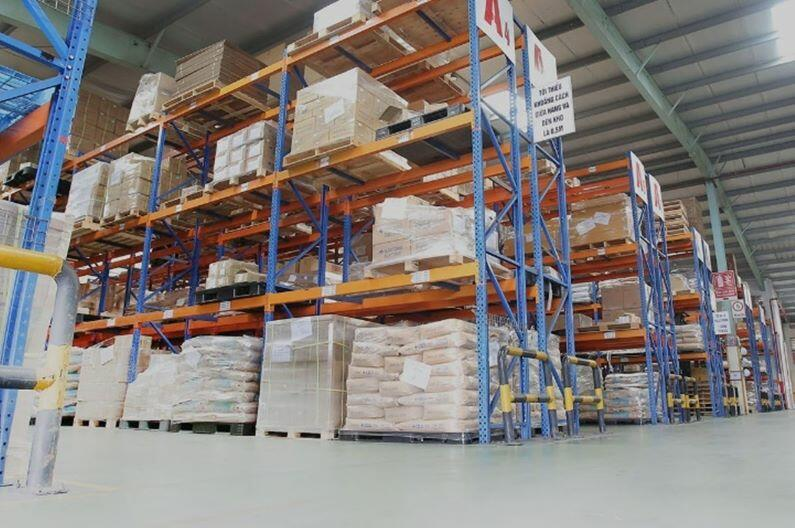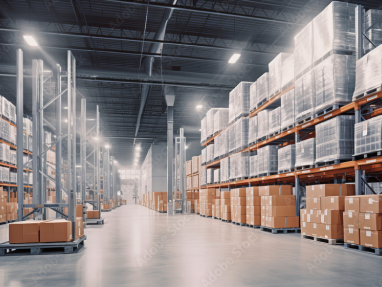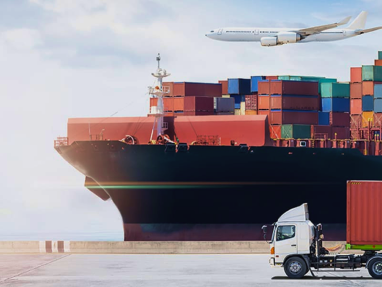Streamlining Product Storage in Vietnam:
Utilizing Bonded Warehouses for Non-Resident Inventory Management
The ongoing trade friction between the U.S. and China has placed Vietnam in the spotlight as a prime destination for relocating production bases. Many products manufactured in Vietnam, such as textiles, machinery, and mobile phones, are now being imported into Japan. The production of these industrial goods often requires the import of components and raw materials from abroad. Utilizing bonded warehouses during this procurement process can significantly reduce logistics costs.
This article explores how non-resident inventory can be effectively managed using bonded warehouses in Vietnam.
Note: Non-resident inventory refers to stock owned by a company outside Vietnam without establishing a local legal entity. Further details are provided in Section 2.
Table of Contents
1. What is a Bonded Warehouse?
2. Managing Non-Resident Inventory using Bonded Warehouses
3. Examples of Bonded Warehouses in Vietnam
4. Summary
What is a Bonded Warehouse?
A bonded warehouse is a storage facility designated for holding goods as foreign cargo. Typically, goods arriving from overseas undergo import customs clearance, requiring payment of duties and taxes like customs and VAT. However, goods stored in a bonded warehouse are treated as foreign cargo until they are shipped to their final destination within Vietnam. As a result, duties and taxes are deferred until the goods leave the bonded warehouse for domestic delivery.
Unlike general warehouses, where taxes must be paid at the time of import, bonded warehouses allow businesses to defer taxes until the goods are sold and shipped. This alignment with the sales timeline improves cash flow by postponing tax payments to coincide with revenue collection.
Note: Taxation and regulations may vary depending on the corporate status of entities in Vietnam. Please contact us for further details.
Managing Non-Resident Inventory using Bonded Warehouses
A key advantage of using bonded warehouses in Vietnam is that non-resident companies (those without a local presence in Vietnam) can hold inventory under their own name.
This means that suppliers and trading companies from countries like Japan, without a local entity in Vietnam, can store inventory in Vietnamese bonded warehouses under their own ownership. By shipping in bulk to Vietnam and storing goods in a bonded warehouse, then distributing smaller quantities as needed, businesses can achieve (1) reduced logistics costs and (2) shorter lead times compared to shipping directly from Japan in smaller shipments.
Since 1996, Suzuyo, in partnership with Sumitomo Corporation, has operated Dragon Logistics, with bonded warehouse facilities in both Hanoi (northern Vietnam) and Ho Chi Minh City (southern Vietnam). With nearly 30 years of experience, our bonded in northern Vietnam, operational since 2002, became the first foreign-owned warehouse approved for bonded operations.
Today, Dragon Logistics serves customers not only from Japan but also from South Korea, Singapore, Thailand, and China, providing Just-In-Time delivery services to manufacturing plants across Vietnam. Additionally, Suzuyo’s trading arm offers Vendor-Managed Inventory (VMI) services under the non-resident inventory system. By leveraging the strengths of both Dragon Logistics and Suzuyo Corporation, we offer integrated solutions for both logistics and trade management. If you’re interested, feel free to contact us for more information.
Examples of Bonded Warehouses in Vietnam
Here are some examples of how our customers benefit from using Dragon Logistics’ bonded warehouses:
Example 1: Non-Resident Company Selling Within Vietnam
By using a bonded warehouse, non-resident companies can hold inventory in Vietnam without paying import duties until the goods are sold to local customers. This setup allows businesses to align tax payments with the timing of sales, improving cash flow. Compared to shipping small batches from Japan on demand, this approach reduces transportation costs and shortens delivery lead times, leading to improved customer satisfaction.
Vietnam designates companies operating within industrial parks or special economic zones and exporting all of their production as Export Processing Enterprises (EPEs), granting them preferential treatment such as import and export duty exemptions. Using bonded warehouses allows duty-free delivery of raw materials and components to these EPEs on a Just-In-Time basis.

Example 2: Non-Resident Company Exporting Vietnam-Made Goods Overseas
In a reverse scenario to Example 1, non-resident companies, such as Japanese firms outsourcing production to EPEs in Vietnam, can use bonded warehouses for temporary storage before exporting goods overseas. This allows for delivery scheduling and inventory management at the destination. Bonded warehouses can also be used to consolidate goods from multiple suppliers into full container loads before export, reducing both costs and export processing workload.
Dragon Logistics also provides detailed services such as repackaging goods into boxes labeled in the appropriate language for the export destination. We ensure optimal solutions for every customer’s unique needs—please don’t hesitate to reach out to discuss your requirements.
Summary
As we've seen, the non-resident inventory system utilizing bonded warehouses enables Japan-based customers without a presence in Vietnam to optimize their inventory, reduce logistics costs, and achieve shorter lead times. Dragon Logistics offers tailored solutions to meet your specific product and raw material supply chain needs. Please don't hesitate to contact us for consultation and inquiries.
Beyond bonded warehousing, Dragon Logistics offers a comprehensive suite of logistics services, including international transport, customs clearance, and equipment transportation.
For more information, please visit Dragon Logistics web site.





